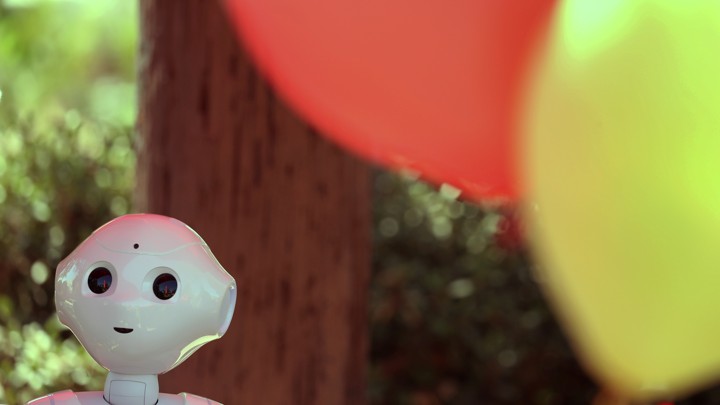
When machines start picking off all the easy work for themselves, many white-collar jobs are going to get a lot harder. About five years ago, I was the vice president of data for Kickstarter. People would come to the crowdfunding platform with wild ideas—before I got hired there, I used Kickstarter to raise funds for a translation of Moby-Dick into emoji—and company staff got to decide which projects could solicit money from the public. For those working on the Kickstarter projects team, being able to see an obviously worthy idea, and approve it five seconds later, was a total blast. In the early days, it felt like everyone at the company was competing to see what kind of fun and interesting projects we could recruit to our platform.
But as the number of inventors and artists seeking money on Kickstarter exploded, the projects team needed an automated solution to help process the influx of new ideas during surge periods. Holiday weekends were especially difficult, as the projects team’s queue would back up with hundreds of worthy projects. Those delays began frustrating creators who were waiting for the team to approve their proposals. So I oversaw the development of an automated system that would consider each product’s stated purpose, its creator’s past record of success, and other factors, and fast-track the most promising ones.
The idea behind the automation was straightforward: Projects that scored the highest—such as Santorini, a tabletop game that ended up raising more than eight times its goal and quickly became a best seller outside Kickstarter—would gain approval to launch without human intervention.
Our machine-learning system soon took 40 to 60 percent of the manual approvals off our projects team’s plate, allowing it to process the queue of incoming projects even faster. But, as things turned out, it also led to a dramatic drop in the average quality of projects that human reviewers would see. No more crowd-pleasers such as Potato Salad; just dreary projects such as impractically heavy duvets and questionable anime games.
When people talk about the effects of automation and artificial intelligence on the economy, they often fixate on the quantity of human workers. Will robots take our jobs? Others focus instead on threats to the quality of employment—the replacement of middle-class occupations with lower-skill, lower-wage ones; the steady elimination of human discretion as algorithms order around warehouse pickers, ride-hailing drivers, and other workers.
What’s less understood is that artificial intelligence will transform higher-skill positions, too—in ways that demand more human judgment rather than less. And that could be a problem. As AI gets better at performing the routine tasks traditionally done by humans, only the hardest ones will be left for us to do. But wrestling with only difficult decisions all day long is stressful and unpleasant. Being able to make at least some easy calls, such as allowing Santorini onto Kickstarter, can be deeply satisfying.
“Decision making is very cognitively draining,” the author and former clinical psychologist Alice Boyes told me via email, “so it’s nice to have some tasks that provide a sense of accomplishment but just require getting it done and repeating what you know, rather than everything needing very taxing novel decision making.”
That people “need both experiences of mastery and pleasure for healthy mood,” Boyes said, is a core idea of cognitive-behavioral psychology. It’s important, she said, “to vary the difficulty of the mastery experiences, rather than having everything be super challenging.”
At Kickstarter, our robot picked off the projects that were clearly the easiest to analyze. Left for human reviewers were projects with muddier scores—particularly ones for ideas that tested the limits of our guidelines, such as projects for helmets (Kickstarter prohibits medical devices) or overly optimistic gadgets (Kickstarter also banned hyperrealistic 3-D renderings of technology that didn’t exist yet). Staffers who had been used to reviewing slam-dunk proposals were no longer seeing them. Their jobs weren’t quite as enjoyable as they had been.


No comments:
Post a Comment